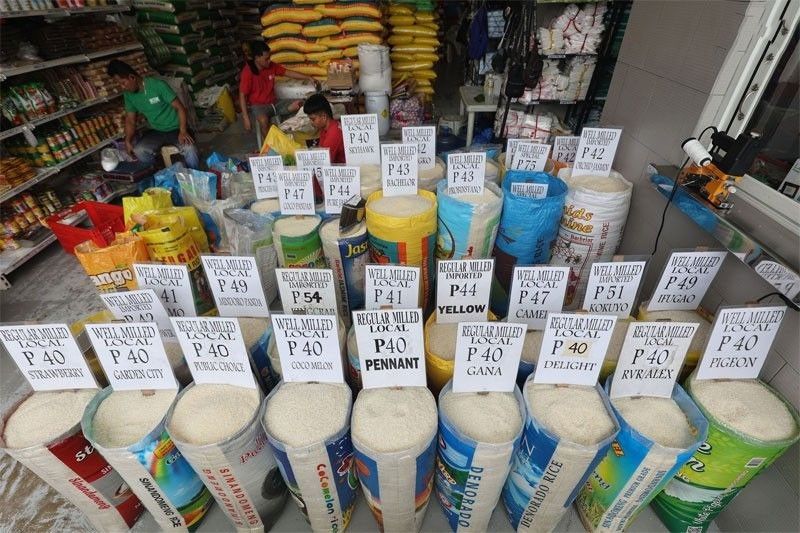Marcos contradicts own EO, says smugglers solely driving up rice prices

MANILA, Philippines — Similar to his statements on the onion price crisis in early 2023, President Ferdinand “Bongbong” Marcos Jr. once again pointed to the problem of hoarding and smuggling as the sole reason currently driving up prices of rice.
Marcos said in a speech before leaving for Jakarta on Monday that the government has determined hoarding and smuggling to be the sole reason for inflating prices of the household staple.
“Ngayon, sa pag-aaral namin ang dahilan lamang dito ay talagang nandiyan ang mga smuggler at saka ang mga hoarder. (Now, we conducted studies showing that the only reason for this is really smugglers and hoarders,” Marcos said.
This is contrary to Marcos' own Executive Order No. 39 wherein the order stated that several factors besides hoarding and smuggling have resulted in the recent surge in rice prices.
Specifically, the order mentioned "global events taking place beyond the Philippines’ control, such as the Russia-Ukraine conflict, India’s ban on rice exportation, and the unpredictability of oil prices in the world market."
EO 39 was signed by Executive Secretary Lucas Bersamin.
Additionally, Marcos said in his speech that with the “market … being tempered with,” the government had to step in and impose a price ceiling for rice.
Marcos’ executive order greenlighting the recommendation to impose a price ceiling on rice — P41 for regular milled and P45 for well-milled rice – will take effect tomorrow.
The move has since been criticized by farmers group Bantay Bigas, who said the measure was “never a threat to big traders, hoarders, smugglers or the rice cartel” and that the “mandated price caps were much higher than their supposed retail prices based from the farmgate price levels last harvest season.”
The average farmgate palay price increased to P19 per kilogram in June, up by at least 9.4%, latest data from the Philippine Statistics Authority shows.
In a previous statement, Marcos said in June that the 87% price surge in onions during the first quarter of the year has "no other reason" other than hoarders who manipulate market prices of the commodity.
Solutions
Farmers group Kilusang Magbubukid ng Pilipinas (KMP) said that at the municipal level, rice farmers and their organizations can request for local government units to procure palay directly from farmers at reasonable prices “to help prevent exploitative traders and millers from buying palay at unfair and very low prices.”
With the upcoming harvest season, farmers can collectively sell directly to the LGU, “and the LGU must buy it at a fair price or P20 a kilo or more,” KMP said.
This can then be milled to become cheap rice that will be sold in the public markets, which will also directly benefit consumers, the group said.
KMP also urged the public to “defend their right to food which is constantly undermined by non-stop price hikes.”
"Rice liberalization effectively made the DA, the NFA, and the entire government sitting ducks as big rice traders continue with their overpricing and profiteering,” the group said.
Meanwhile, Deputy Speaker Ralph Recto said in a press release that farmers could suffer a loss of about P40 billion if half of the forecasted palay harvest this year will be affected.
To compensate farmers’ losses, he said that Congress and Malacañang should jointly “pull the trigger” to use the P38.56 billion in rice import tariff collections from January 2022 to August 2023 to support farmers.
Recto said that Congress must amend the Rice Tarrification Law “to authorize direct cash payments to farmers” using past tariff collections, while the president should “temporarily reduce import duties to benefit the rice-consuming poor.”
- Latest
- Trending





























